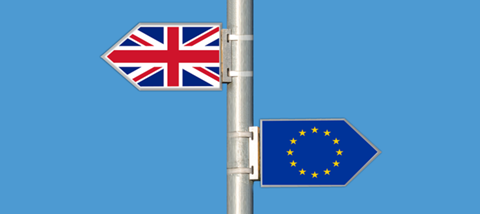
Last Thursday, the United Kingdom voted to leave the European Union. As a Christian Brexiteer, I’m delighted, but not every one of my brothers and sisters in Christ share my elation. Many of them perceive voting to Leave as an endorsement of an anti-Christian politics of fear, xenophobia, and prejudice, one that rejects peace, unity, and international brotherhood. Suffice it to say, I think they are mistaken. Despite the brief division and disappointment, in the long run this historic decision is a good thing for Christian values, one that is in keeping with the counter-cultural nature of our faith.
Whether Britain should have been a member of the EU was not, contrary to what the main campaigns would have had you believe, about the economy, or immigration. Nor was the debate about whether or not you like Europe or Europeans, or whether or not you like either the Leave or Remain campaigns and how they prosecuted their respective cases.
This wasn’t an Election. We weren’t voting on a Government policy platform, or on personalities. We were asking a question on nothing less than the constitutional status of our country. The relevant question should have been: do we buy into the EU project? That is, did we confirm (and implicitly approve of) the UK being a part of an international political superstructure and customs union to which we handed over sovereign powers, including our trading powers?
For Christians, I think the answer must surely have been the latter. For one thing, it is hard to see how we could agree with what the EU essentially is: a protection zone designed to privilege producers in its member states. The system of high subsidies, such as the monstrously wasteful Common Agricultural Policy (CAP), continues every year to penalise people in some of the poorest countries in the world, by preventing them from taking their comparative advantage in primary and secondary sector industries. This retards the development of developing countries to the benefit of rich Europeans, and is an institutional injustice which it has always been profoundly unethical for our country to be part of.
It was also highly problematic to be a member of a Union that has caused so many issues on the level of the right to life of unborn children, the redefinition of civil marriage, or religious freedom. Amongst other things, as I have recently pointed out, the EU has spent millions of Euros in support of the International Planned Parenthood Federation (IPPF), one of the world’s largest abortion providers. Moreover, as the Christian legal scholar Peter Smith has argued, the European jurisprudence contained serious potential consequences for the further degradation of marriage of right-to-life protections, and religious freedom. Christianity, with its counter-cultural social message, would have been severely compromised by a Remain vote.
It was highly problematic to be a member of a Union that has caused so many issues on the level of the right to life of unborn children, the redefinition of civil marriage, or religious freedom.
It would have been one thing had all these been easily reformable matters, but the fact is that the EU is so difficult to change as to be practically unreformable. Reforming the EU – as our now outgoing Prime Minister has found – is practically impossible. It would take a consensus in literally every EU country that doesn’t exist, never will, and would be actively fought by insuperable interests. By leaving, we are not only signalling our opposition to what the EU has become, but are encouraging others to leave also.
In completely reclaiming our sovereign powers, we can now choose to take our country in another direction, and this can be a liberal and internationalist approach. We will be able to forge closer relations with nations with whom we have closer cultural, linguistic, and historic ties. We could open our borders and engage in free trade with Australia, New Zealand, North America, and the developing world, benefiting not only them but ourselves. The United Kingdom could lead not just Europe, but the whole world in being an example and beacon of freedom, justice, and openness.
I see a vote to Leave the EU to be a positive and optimistic act
So, far from being the insular caricature of the motivation for a Leave vote – one that I do not recognise in myself or those I know who voted to go – I see a vote to Leave the EU to be a positive and optimistic act. One which sees our United Kingdom as having a global vocation that goes far beyond the borders of Europe. Those of us who voted for Leave believe in our country as a force for real good in the world that, unhampered by the democratically unaccountable protectionist racket of the EU, could manifest its full potential. With the right political activity by Christians and our fellow countrymen, this vision can now become a reality.
Despite the division and disappointment that this Referendum result has caused, in the long run this is an historic decision that will be a very good thing indeed for the social and moral values of Christianity, and – not without our own efforts - will allow the counter-cultural nature of Christianity to flourish.
Peter D. Williams is executive officer of Right To Life





























